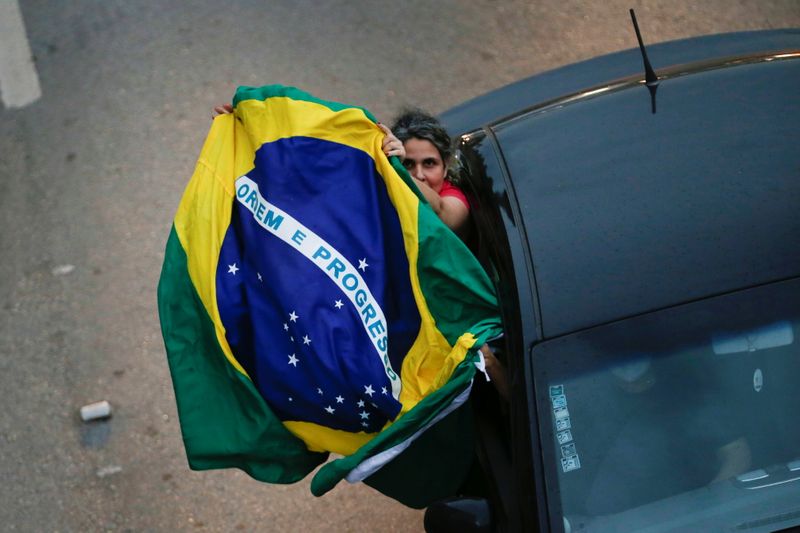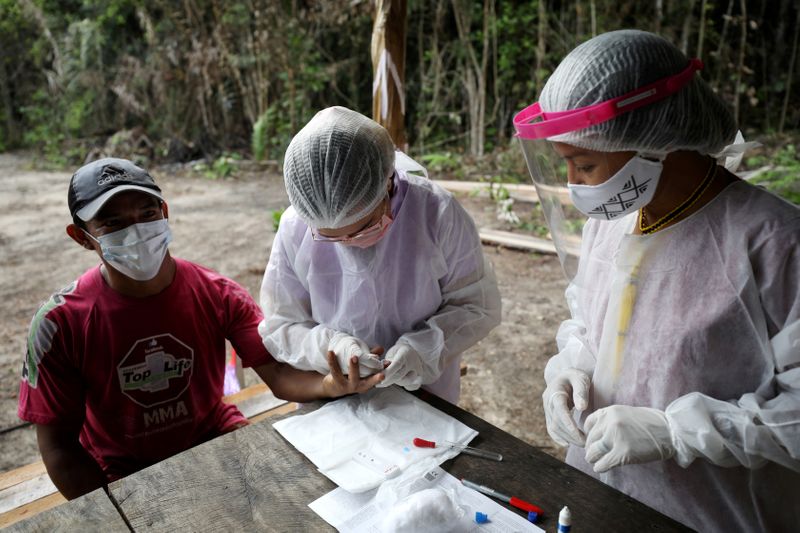RIO DE JANEIRO (Reuters) – Brazil has scaled back coronavirus testing in recent months even as infections soar and it recorded the most COVID-19 deaths in the world over the past week, according to Health Ministry data.
The result is a nation navigating in the dark, experts said, without the ability to trace and contain transmission, let alone track the spread of dangerous new virus variants in real time.
Brazil’s public health system and major private laboratories conducted about 44,000 daily PCR tests – the gold standard for identifying the novel coronavirus – in the last week of February, the latest public Health Ministry data show.
That was down by nearly a third from Brazil’s peak for testing: more than 65,000 per day in the third week of December.
By comparison the United States, the only nation with more total COVID-19 deaths, has averaged over a million tests per day in the last nine months.
Brazil’s Health Ministry did not answer questions about the decline in testing. Recent ministry notes cited investments to increase testing capacity.
“There’s no justification,” said Diego Xavier, a public health researcher for the Fiocruz biomedical institute. “We’ve processed more tests before. So the only explanation is a reduction in the testing program at a time when we should be increasing it.”
One in three tests in Brazil were positive in late February, ministry data show, far above the benchmark 5% positivity rate cited by the World Health Organization for countries containing their outbreaks.
“The high positivity rate is another indicator of the collapse we are facing,” Xavier said. “Our situation is completely out of control and the trend is for contagion to keep rising.”
Confirmed new cases have doubled since the start of the year in Brazil to average more than 69,000 per day in the past week, surpassing roughly 56,000 daily cases in the United States to become the world’s largest active outbreak.
COVID-19 fatalities in Brazil rose even more sharply to 10,000 deaths in the past week, also surging past the weekly U.S. death toll, which has been in decline in recent weeks as its vaccination rollout gathers momentum.
“It’s our worst moment yet, but we haven’t hit the peak,” said Alexandre Naime Barbosa, head of the immunology department at Sao Paulo State University, forecasting some 3,000 Brazilian deaths per day by the end of the month.
With just 2% of Brazilians fully vaccinated and more contagious new variants from the Amazon region circulating throughout the country, health experts say the country’s daily death toll could easily double by the end of the month.
For scientists trying to track those concerning variants, the lack of data is even more daunting.
Brazil has sequenced just over 4,500 virus samples since the start of the pandemic, out of 11 million confirmed cases.
In contrast, the United Kingdom has sequenced more than 336,000 samples as it raced to analyze its own local variants among a confirmed caseload of 4.2 million patients.
“This vigilance is expensive,” said immunologist Ester Sabino of the University of Sao Paulo, who led the first coronavirus sequencing efforts in Brazil. “We need more people doing it.”
(Reporting by Pedro Fonseca; Editing by Brad Haynes and Bill Berkrot)
























